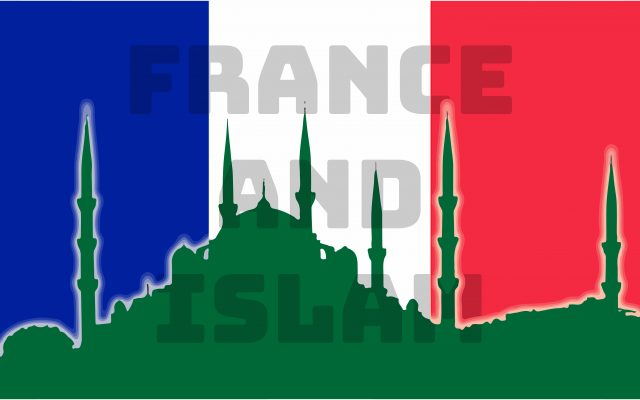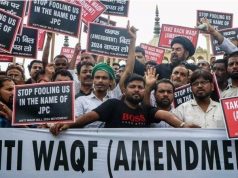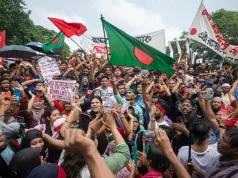Introduction
The event of 9/11 changed the world, especially in the security parlance of states. Prior to this event, the United States’ unipolar moment dominated global politics and economics. Transnational terrorism has become the world’s new challenge to tackle. Any challenge that is not confined to the boundaries of the states becomes a common challenge for the world, where the different countries come together to fight. For example, climate change is the global phenomenon for which the climate conferences are held to keep the temperature of the earth below a certain limit. The same thing happened in the aftermath of 9/11’s transnational terrorism. The USA led NATO forces decided to invade Afghanistan and Iraq to in a way to end ‘terrorism’, but that was a failure that was realised later. The main organisation behind this attack was Al-Qaeda, and the masterminds allegedly were Osama bin Laden and Ayman al-Zawahiri, both Muslims. Following that, the world, particularly Western countries, became wary of Muslim attitudes, such as their beard, skull cap, hijab, fasting during the month of Ramadan, prayers, and so on. They became stereotypes and prejudices with Muslim identities, and these were reflected in the states’ foreign and internal policies dealing with Muslims. They passed legislation to prohibit, regulate, and reform Muslim practices and identities in order to conform to their own ideas. This created anger in the Muslim population of those countries, where they were attacked for their cherished values and faith in Islam. Muslim citizens with their democratic rights protested against the policies of the state, which convinced the states to tag them as “radicalised Muslims”. Previously, in a normal political climate, the Muslim and other communities coexisted peacefully with little animosity. But the politics for Muslims have now moved away from normal to emergency politics to tackle the “Muslims,” who are seen as a threat to the state. This is the “securitisation” of Islam in the west. This article intends to analyse the Muslim identity discourse in France through the lens of the Copenhagen School conception of security. In the next section, this paper will discuss the security discourse regarding Muslim identities in France.
Muslim Identities security discourse in France
France is a special case in Europe with respect to religion. The French Revolution of 1789 was sparked by the Monarchy and the Church’s duo autocracy, which after the revolution excluded the Church from power and privileges, and which was later codified and became known as Lacité (secularism) in 1905.The process of de-Christianisation was started during the French Revolution and the historical rivalry between Islam and Christianity1 after the bloody war known as the “Crusades” and the fall of Constantinople, which (re)emerged in different forms slowly after the decolonisation of the Muslim colonies and mandates of West Asia and the North Africa region. The Muslim population began migrating to European countries as a result of several ethnic conflicts and wars in these recently liberated countries. In France, this is a serious issue that, according to them, dilutes their values. A Muslim candidate is 2.5 times less likely to be called in for an interview than a Christian candidate2. With the events of 9/11, the rivalry between Islam (East) and the West resurfaced.
Although there were instances of controlling the identities of the Muslim in France as back as 1989 when the “affaire du foulard” or the “Scarf Affair”3 took place and following that the French Council asked the school administrators to look upon the individual cases of the veiled girls. After the 9/11 event, the securitisation of Muslim identity gained momentum. This was a big public issue in France, which created debates among the masses. Any public issue is either nonpoliticised, politicised, or securitised4. It depends on the states’ culture, history, geography, and perception of threat, and these also vary across time and space. Rising sea level, for example, can be a security issue for island countries but not an issue at all for landlocked countries. According to the Copenhagen School, securitisation is the extreme version of politicisation5. It simply means that when an issue cannot be dealt with by normal politics and needs more attention and resources to deal with, move into the higher level of politics, which the Copenhagen School calls “emergency”. When an emergency is declared with respect to any issue, in other words, securitisation is done. The Muslim identities in France are not seen as normal and go against the values of the French Republic. According to a 2019 poll, 61 percent of the French believed that Islam was incompatible with the values of the French Republic6. The French did not come to the conclusion at once that Islam is threatening to the French Republican values; rather, it took time to create the “discourse and political constellations”7 that take place in the form of presenting something as an existential threat. In the securitisation process, it is not enough to present something as a threat; it has to be accepted by the audience8. The above poll shows that Islam is accepted as a threat to the French Republic.
Securitisation is always done by the securitising actor. Traditionally, it was always understood and done by the state itself to securitise anything that seemed threatening. The Copenhagen School assumes that a securitising actor can be a group, including political leaders, bureaucracies, governments, lobbyists, and pressure groups9. They will speak the language of threat creation, like – it is necessary to defend the security of the state, nation, civilisation, or some other larger community, principle, or system. The French state is the securitizing actor in the securitization of Islam in France, and the referent object is Muslim identities. In the next section, I will discuss how the French state converted the security discourse of Muslim identities into real security through legislation, ordinances, and speeches.
Conversion of security discourse of the Muslim identities into reality
As discussed above, the identities of Muslims in France have been seen as a threat to the French Republic, especially in the post-9/11 period. Initially, laws like the “Law on Secularity and Conspicuous Religious Symbols” in 2003 and the “Act prohibiting concealment of the face in public space” in 2011 stigmatised Muslim identities and Islamic religious symbols in public life. The visible Muslim identities in public were labelled “radicals” and “Islamists” by French deputies, who warned the Muslims that they would not be allowed to endanger the Republic. The imams of the mosques were expelled for having commented anything that contravened the state’s values. The state has not declared that Muslim identities and Islamic religious symbols are security issues directly, but they are inherent in their speeches and actions. France refused to apply article 27 of the International Covenant on Civil and Political Rights and article 30 of the Convention on the Rights of the Child, which grant national minorities the right to enjoy their own culture and profess and practice their own religion. Christophe Castaner, Interior Minister of France in 2018, designated Muslim identities like growing a beard, praying, and increasing religiosity in the month of Ramadan as signs of “radicalisation.”10 The terms “radicalisation,” “Islamism,” “political Islam,” “extremism,” and “radical Islam” are all value-laden words that instill fear in the public, posing a threat to both French citizens and the French state, and providing enough legitimacy to the securitising actor (here, the French state) to legislate, formulate, ban, close, expel, regulate, restrict, or otherwise restrict whatever is associated with and appears to be threatening to French ideals.
The Institut Montaigne, a private think tank established very close to the French government in 2000, drafted two reports in 2016 and 2018 that shaped the French government’s approach towards Muslims. The first report, titled “A French Islam is Possible,” recommended the government to rearrange the organisational structure of the French Muslim in order to establish a “French Islam which represents the world in a manner compatible with that of the French Republic.”11 The clear objective was to undermine and change Islam’s basic principles and practices to be compatible with their ideals. And the second report, “The Islamic Factory,” focused on “Islamism.” It defined Islam as “an interpretation of the world, a vision of the organisation of society, including the secular world, and a role given to religion in the exercise of power” to “preserve an Islamic civilization and to establish a Universalist and proselyte vision of Islam.”12 It highlighted that Islam, as a foreign religion, was coercing the values of the republic by universalising and imposing the Islamic doctrines, which pose a threat to French civilisation and cultural codes. The author of these reports, Hakim El Karoui, addressed Muslims by saying, “Leave your specificities, and you will become French.”13 This was an open call to Muslims to set aside their identities if they wanted to be integrated into the French state; otherwise, they would be securitised to the point where the French state would coerce them to change their core values and identities. The surveillance of Muslims increased after a series of attacks carried out by Muslims during 2015/16 including the tragic Bataclan and Bastille Day attacks. Emmanuel Macron, after becoming the president of France, used this fuel to attack Islam and Muslim identities and declared that “Islamist separatism” was the enemy to be dealt with. These rhetorical speeches gave the French state’s executive branch enormous power to use force against Muslims. The minister of the interior, Geráld Darmain, used warlike language for the Muslims: “We are beginning to spread terror among those who wanted to impose it on us.”14 How is it possible that a certain minority with no power is in a position to impose their values on the majority with power? These speeches were meant to generate a consensus among the French people to show that Islam and Muslims are threats to the state. Emmanuel Macron, in his speech on October 2, 2020, identified the problem that he wanted to tackle, which later became the Anti-Separatism Law.
“What we must tackle is Islamist separatism. A conscious, theorised, political-religious project is materialising through repeated deviations from the Republic’s values, which is often reflected by the formation of a counter society as shown by children being taken out of school, the development of separate community, sporting and cultural activities serving as a pretext for teaching principles which are not in accordance with the Republic laws. Its indoctrination, through this, the negation of our principles, gender equality and human dignity.”15
These words are a clear indication that French Republican values have long been under threat, and anything found to be threatening to their values due to Muslim identities is securitised. In December 2017, Emmanuel Macron asked Gerárd Collomb, interior minister, to carry out a secret plan known as the “Plan to fight radicalisation” then changed it to “fighting against Islamism and community withdrawal,” which was implemented in fifteen unknown areas throughout the country. Later on, on November 28, 2019, interior minister Christophe Castaner opened the secret plan to the public as the Systematic Obstruction Policy.16 This policy gave the authority to inspect and control suspect locations without hesitation, including mosques, schools, cultural or sporting establishments, and public houses. Within two years, there were 1030 public controls. Inspection based solely on suspicion and doubt is nothing more than a perception of a threat to the French Republic from Islam and Muslim identities. This policy threatens Muslim organisations and places like organised crime in order to keep Muslims under siege in France. This is evidenced in the “Imam’s Charter,” drafted by the state-backed French Council of the Muslim Faith and implemented in 2021.17 This charter subordinated the imams as well as Islam to the dictates of the French Republic to conform to their values and ideals. The control of the imam shows the control of Muslims and Muslim identities, which are perceived as a threat to the state. As a result, to overcome the threat, the Muslims were securitised in France.
Conclusion
The French state’s analyses of French Muslims show that they are not treated equally with French citizens, but rather as a threat to their Republican values and ideals. To maintain their secular state, subsequent French governments used anti-Muslim speeches and propaganda to create a sense of alienation from Muslims among French citizens, which gradually translated into laws and legislation to control, ban, and surveil Muslim identities and Islamic religious symbols. Moreover, the Muslim organisations and the individuals who spoke out and protested against these laws, which forced Muslims to conform to the dictates of the French state, have been tagged as “radicals,” “extremists,” and “Islamists,” which further generated the false narrative of threat. The whole Muslim population, including the imams, is securitised in France, where their every movement and word is under continuous surveillance. Anything that looks doubtful to the French state is immediately inspected and controlled without hesitation.
Notes:
- Muslims in Europe (2010) A Report on 11 EU Cities (Open Society Institute, New York)
- Adida, C. L., Laitin, D. D., & Valfort, M. A. (2010). Identifying barriers to Muslim integration in France. Proceedings of the National Academy of Sciences, 107(52), 22384–22390. https://doi.org/10.1073/pnas.1015550107
- Beriss, D. (1990). Scarves, Schools, and Segregation: The Foulard Affair. French Politics and Society, 8(1), 1–13. http://www.jstor.org/stable/42844141
- Buzan, B., Wæver, O., & Wilde, J. de. (1997). Security: A New Framework for Analysis (pp. 23-24). Lynne Rienner Publishers.
- Ibid., 23.
- Tomlinson, C. (2019, October 29). Poll: 61 Per Cent of French Say Islam ‘Incompatible’ with Society. Breitbart. https://www.breitbart.com/europe/2019/10/29/poll–61–per–cent–french–say–islam–incompatible–society/
- Buzan, B., Wæver, O., & Wilde, J. de. (1997). Security: A New Framework for Analysis (pp. 24). Lynne Rienner Publishers.
- Ibid., 25.
- Ibid., 40.
- We are beginning to spread terror (2022) CAGE (pp.17), https://www.cage.ngo/wpcontent/uploads/2022/03/ENG-_We-are-beginning-to-spreadTerror_-report-2022.pdf
- Hakim El Karoui. (2016). A French Islam is Possible. In Institut Montaigne.
https://www.institutmontaigne.org/ressources/publications-pdfs/a-french-islam-is-possible-report.pdf - Hakim El Karoui. (2018). The Islamist Factory. In Institut Montaigne. https://www.institutmontaigne.org/ressources/pdfs/publications/Short%20Version%2090%20pages.pdf
- We are beginning to spread terror (2022) CAGE (pp. 21),
https://www.cage.ngo/wp-content/uploads/2022/03/ENG-_We-are-beginning-to-spreadTerror_-report-2022.pdf - Ozcan, Y. (2021, September 30). France closes nearly 30 mosques in less than a year. Anadolu Agency. https://www.aa.com.tr/en/europe/france–closes–nearly–30–mosques–in–less–than–a–year–/2379348
- Fight against separatism – the Republic in action. (2020, October 2). Ministère De L’Europe Et Des Affaires Étrangères. https://www.diplomatie.gouv.fr/en/coming–to–france/france–facts/secularism–and–religiousfreedom–in–france–63815/article/fight–against–separatism–the–republic–in–action–speech–by–emmanuelmacron
- We are beginning to spread terror (2022) CAGE (pp.26),
https://www.cage.ngo/wp-content/uploads/2022/03/ENG-_We-are-beginning-to-spreadTerror_-report-2022.pdf - Charte des principes pour l’Islam de France. (2021, January 20). Grande Mosquee De Paris. https://www.mosqueedeparis.net/charte–des–principes–pour–lislam–de–france/
About the author:
Abdur Rauf Reza is a diligent academician whose research delves into the intersection of Religion and International Politics, specifically Islam and secular epistemology. His aim is to generate insightful and thought-provoking contributions that amplify our comprehension of these crucial areas. He knows Chinese and Arabic language.






